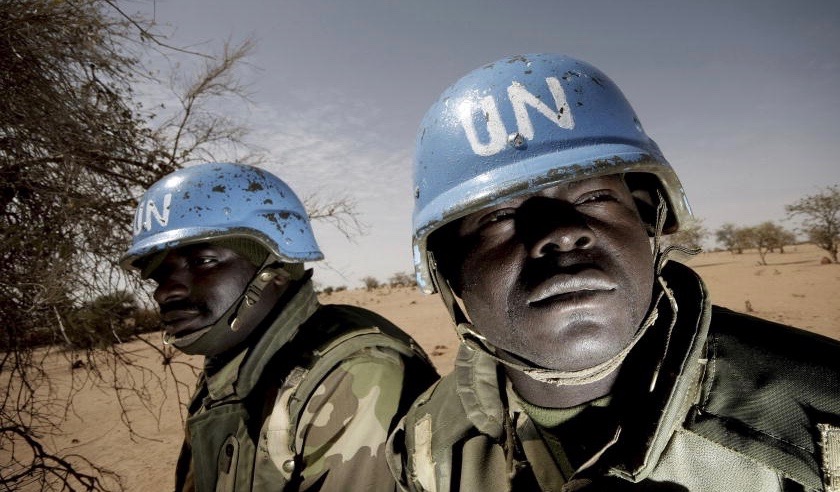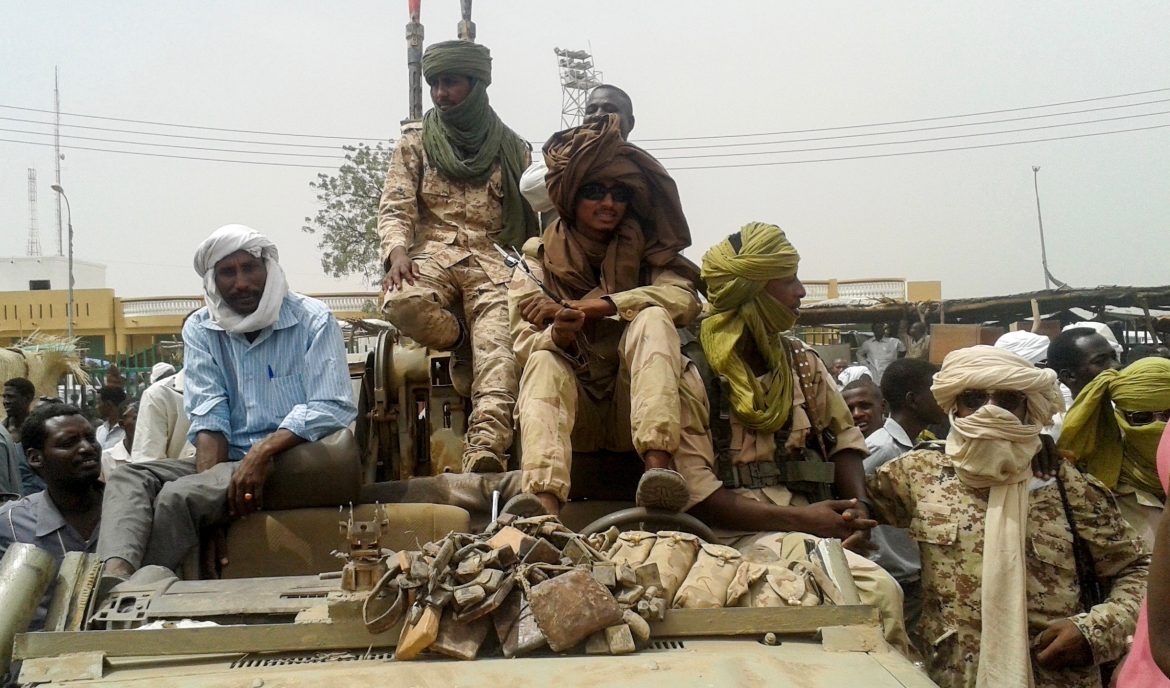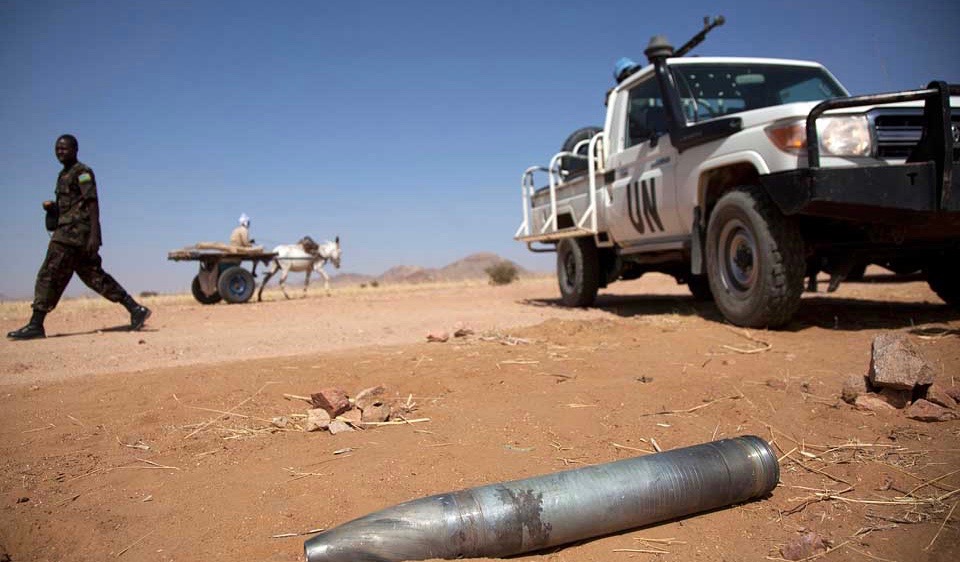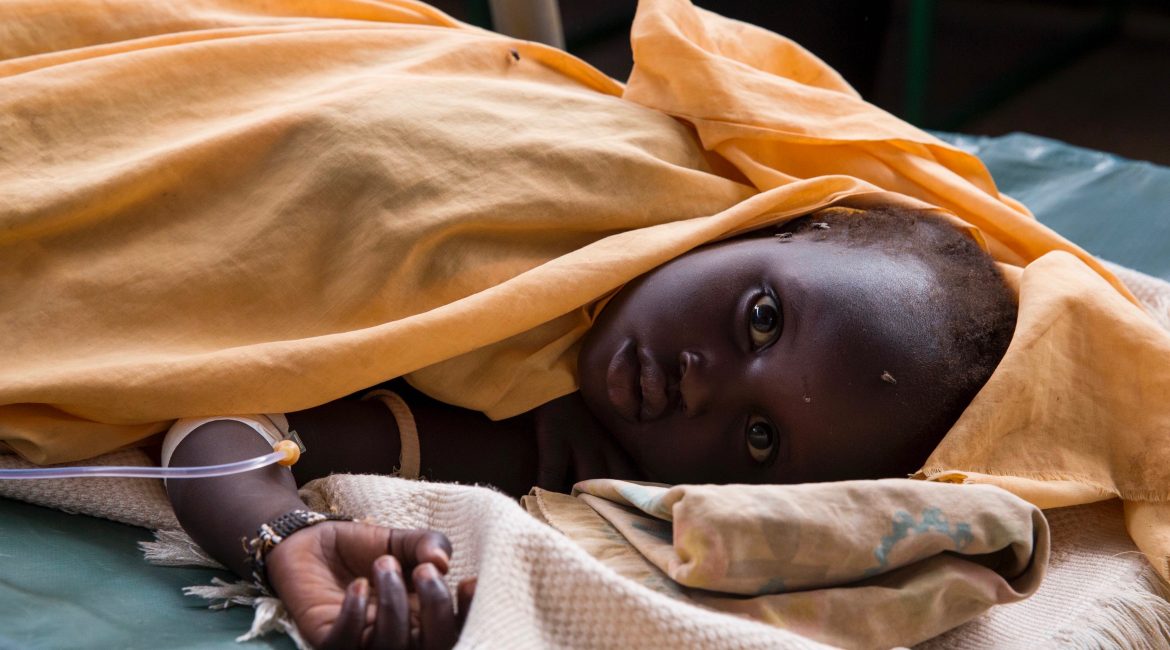Darfur tribal leaders fear the recent government-led disarmament exercise in the region may lead to further conflict than peace. While the local representatives support the idea of disarmament, they believe the implementation procedures and the armed group assigned to conduct the task may incur further regional strife.
“The citizen [of Darfur] carry weapons because he does not feel safe,” explains Masalit leader, Sultan Malik Yacoub. The hurried disarmament campaign lacks consultation with local communities and targets certain groups over others, Yacoub said. “We will only face more chaos this way.”
In late July, Sudan’s Vice-President Hasabo Abel Rahman announced the launch of the disarmament campaign in the Darfur and Kordofan areas, along with the re-organisation of state-allied militias in the region. According to a presidential decree, illegal weapons and vehicles are to be handed over voluntarily to the paramilitary group, the Rapid Support Forces (RSF) or local authorities. Following the voluntary submissions, Defence Minister Awad Ibn Ouf said they would collect arms from residents by force. Finally, various government militias recruited to fight the insurgency in Darfur are meant to merge into the RSF, an order opposed by the formerly pro-government Border Guard militia.
Both the president and deputy have cited in speeches that the free flow of illegal arms among Darfur citizenry as the “biggest threat to Darfur’s security” and that disarmament was the government’s “top priority”.
Darfur “a market for arms”
The need to curb the expansive arm trade in Darfur is palpable to all citizenry in the region. Over the past decade, more than 730 tribal clashes took place in Darfur leading to mass killings and displacement. Some 277 civilians have died in Darfur this year alone.
According to former South Darfur State official Hussein Mousi, the government started to distribute weapons to certain tribes in Darfur to quell the rebel insurgency in 2003 and continued doing so to present day, particularly in East and South Darfur states. For the past ten years the government is the single largest supplier of weapons in the region, Mousi told Nuba Reports. With arms via the government as well as flowing from neighbouring countries, “Darfur has turned into a market for arms,” he said.
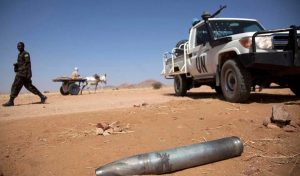
An unexploded bomb near Shangel Tuabaya, North Darfur (UNAMID)
So far, the disarmament programme has met little success due to the fears of insecurity by citizens, local tribal leaders claim. By August 21, no more than 179 weapons were collected in South Darfur despite a local inventory estimating around 17,000 arms within the state, news reports said. The lack of progress led Vice President Abdel Rahman a week later to announce during a forum a “shoot to kill” policy for those who resisted the disarmament campaign.
According to the Darfur Relief and Rehabilitation Centre, a civil society-based advocacy organisation, dozens of community leaders were arrested for refusing to cooperate in the disarmament campaign. Fulani tribal leader Abdullah Arshu spoke to Nuba Reports via prison. Arshu was detained earlier this year for his protests against violations by RSF forces against civilians in the region. “People need to protect themselves from insecurity, it is difficult [for the government] to collect arms in this environment.” Arshu believes the only way to disarm Darfur is by disarming everyone without exception, not focusing on certain tribes.
Mohamed Al Haj, a community leader from the Arabic Maaliya tribe, agrees. “The government should collect weapons from all sectors of society in Darfur, not target one tribe without the other.” Al Haj told Nuba Reports that authorities have arrested Arabic tribal leaders in East Darfur. “The government jails tribal leaders and then somehow requests to collect arms from individuals within the same tribe. This is not reasonable.” He added that by not collaborating with tribal leaders and rushing the disarmament campaign, authorities “will inevitably fail.” Al Haj and other tribal leaders do not believe the infamous RSF militia assigned to disarm civilians are neutral enough to carry out the exercise. “The majority of Rapid Support Forces are members of the Riziegat tribe,” he said. “There must be a joint force of all ethnicities to participate in the campaign.”
“The government should collect weapons from all sectors of society in Darfur, not target one tribe without the other”
–Mohamed Al Haj, Maaliya Community Leader
Opposition rebel leaders have also criticized the campaign, claiming that the pro-government militias such as the RSF must be disarmed first before leaving civilians defenceless.
But Interior Minister official Babeker Abu Samra said in August during a seminar on disarmament in Khartoum that tribal leaders should not fear and cooperate with the campaign. The police chief claimed police would be deployed across Darfur to provide protection to civilians as their arms are collected.
A notorious militia
The RSF, however, have a long track record of defying the police. In July, the RSF actually raided a police station in South Darfur’s capital city Nyala, forcing the police to evacuate the station after the RSF leader, Lt.-Gen. Mohamed Hamden Daglo (known at “Hemetti”) had allegedly purchased the land where the station was based. With a history of criminality, the pro-government militia are reportedly misusing their authority in the disarmament exercise in several villages in South Darfur State to steal money and other valuables, including stripping women naked in search of jewellery, the Centre reported.
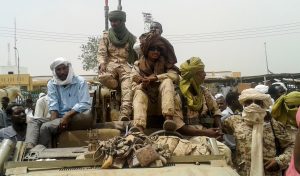
RSF in Nyala, South Darfur (Nuba Reports)
The RSF’s central role in the disarmament campaign may be the key reason local Darfur communities are hesitant to support the effort and fear future conflict. According to data collected from the Armed Conflict Location & Event Data Project (ACLED), the RSF may have terrorised citizenry far more than during the nadir years of the Darfur conflict when the government armed the RSF predecessor, the Janjaweed militia. The militia is known for a number of human rights abuses against civilians in Darfur that triggered the International Criminal Court arrest warrant for President Omar Bashir in 2009. But Bashir re-branded the Janjaweed in 2014 under a new name, the Rapid Support Force –allegedly as a more organised and loyal paramilitary force than their notorious forerunner. The Janjaweed attacked an estimated 1,000 and displaced 1.4 million civilians over a nine-year period from 2003 when the Darfur conflict began to 2012, according to ACLED research. But the RSF attacked 2,000 citizens over a two-year period from 2014 –doubling attacks against the public over a shorter timeframe. From 2013, the RSF actually displaced another 700,000 people, averaging around 20k more displaced per year under the RSF than the Janjaweed.
Signs of war
It is with this egregious record that Darfur citizens fear submitting arms to the RSF and local armed groups fear a military takeover. The former Janjaweed and Al-Mahameed tribal leader Musa Hilal is particularly concerned. If disarmed, Hametti’s RSF could takeover his forces, even his tribal leadership. This is the key reason why Hilal categorically refused this month to integrate his Border Guard Force militia, an armed group of 3,000 Al-Mahameed tribesmen, into the RSF militia as stipulated by the government disarmament campaign.
On August 12, Hilal held a rally in his stronghold Misteriha, North Darfur State with thousands of supporters -–including traditional leaders and Border Guard Force commanders– and announced his readiness to confront the government army head on, local journalists said. A day earlier, Sudanese authorities arrested seven followers of Hilal on the Darfur-Libya border, accusing them of working with a rival Libyan rebel force. To intimidate further, the Sudanese army conducted the largest internal manoeuvre in its history near the strongholds of Musa Hilal this month with the participation of tanks and the air force.
The government is under international pressure to collect weapons. UN Security Council resolution 1556 calls for disarming and dismantling the Janjaweed militia and bringing their leaders to justice. Sudan is keen to fulfil this resolution and demonstrate cooperation with the international community in hopes the U.S. will lift economic trade sanctions in October.
“The collection of weapons is a plan by the state to provoke a new crisis in Darfur”
–Musa Hilal, Al-Mahameed tribal leader
But Khartoum is also interested in mitigating their supporters-turned-antagonists and the disarmament campaign provides a useful tool to do so. Hilal’s forces believe the state-led weapons collection campaign is exactly that – a means to weaken them. “The collection of weapons is a plan [designed] by the state to provoke a new crisis in Darfur,” Hilal said during the rally in Misteriha.
Academic researcher Ahmed Hussein Adam concurs. A research associate at the University of London, Adam refers to the government’s disarmament campaign as “political fraud” –designed to trigger internal fighting between Darfur militias rather than remove the tools of violence in the region. Adam says Sudan’s weapon collection in Darfur is a divide-and-conquer tactic, igniting sedition to rid the government of militias after exhausting their purposes.
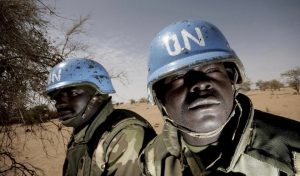
UNAMID troops in Darfur (UNAMID)
Whether Khartoum’s expressed intentions or not, it is clear the main victims of the government’s weapon collection in Darfur are the citizens themselves. On June 29, the UN Security Council voted to reduce the UN-AU Hybrid peacekeeping force in Darfur, UNAMID, by over a third of its troops and police officers. The resolution also called for the eventual closure of 18 team sites. A selective disarmament process that targets citizens and a reduced international presence will undoubtedly leave Darfur’s internally displaced –who represent nearly a third of the Darfur’s population– the most vulnerable.

